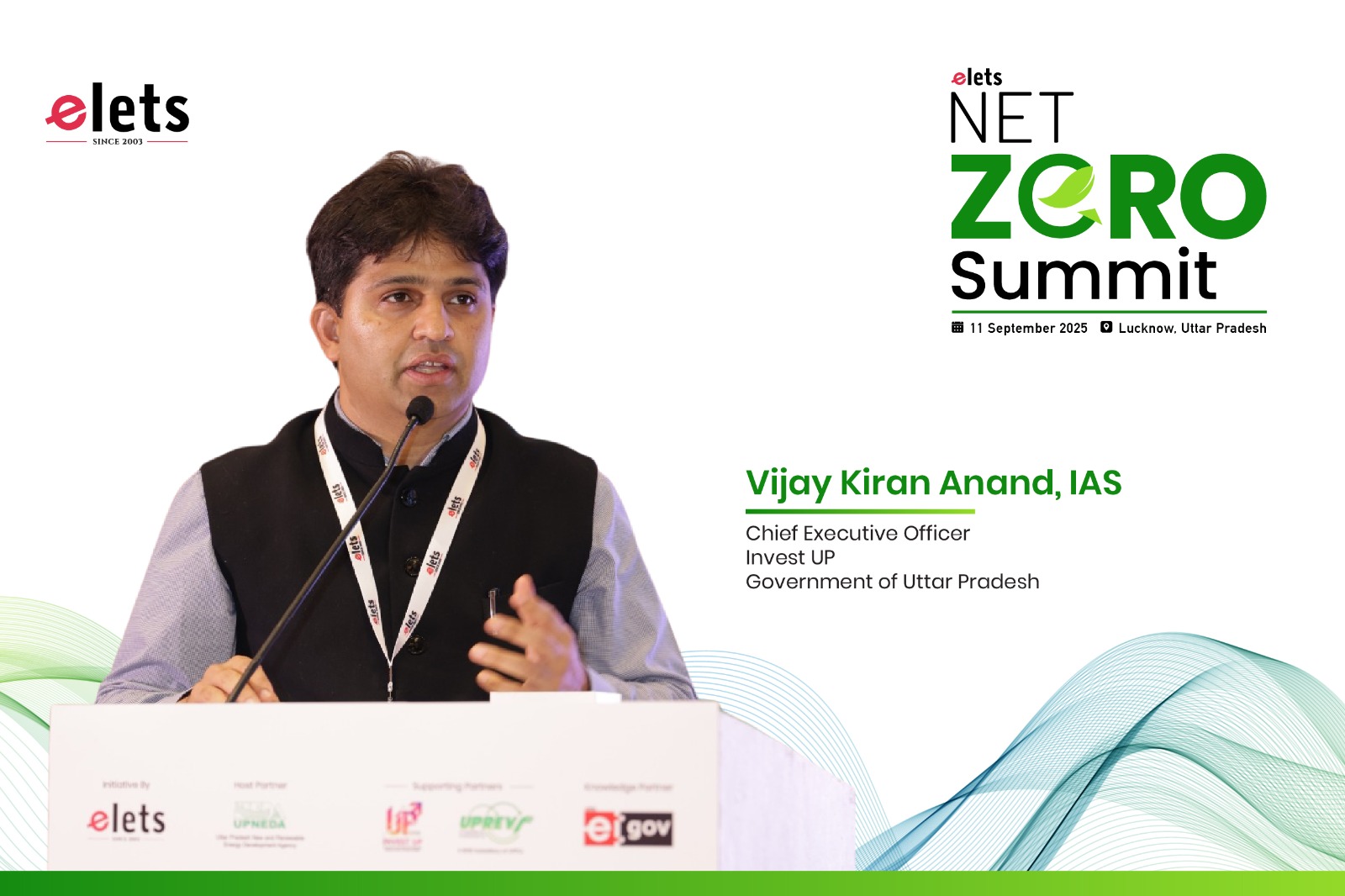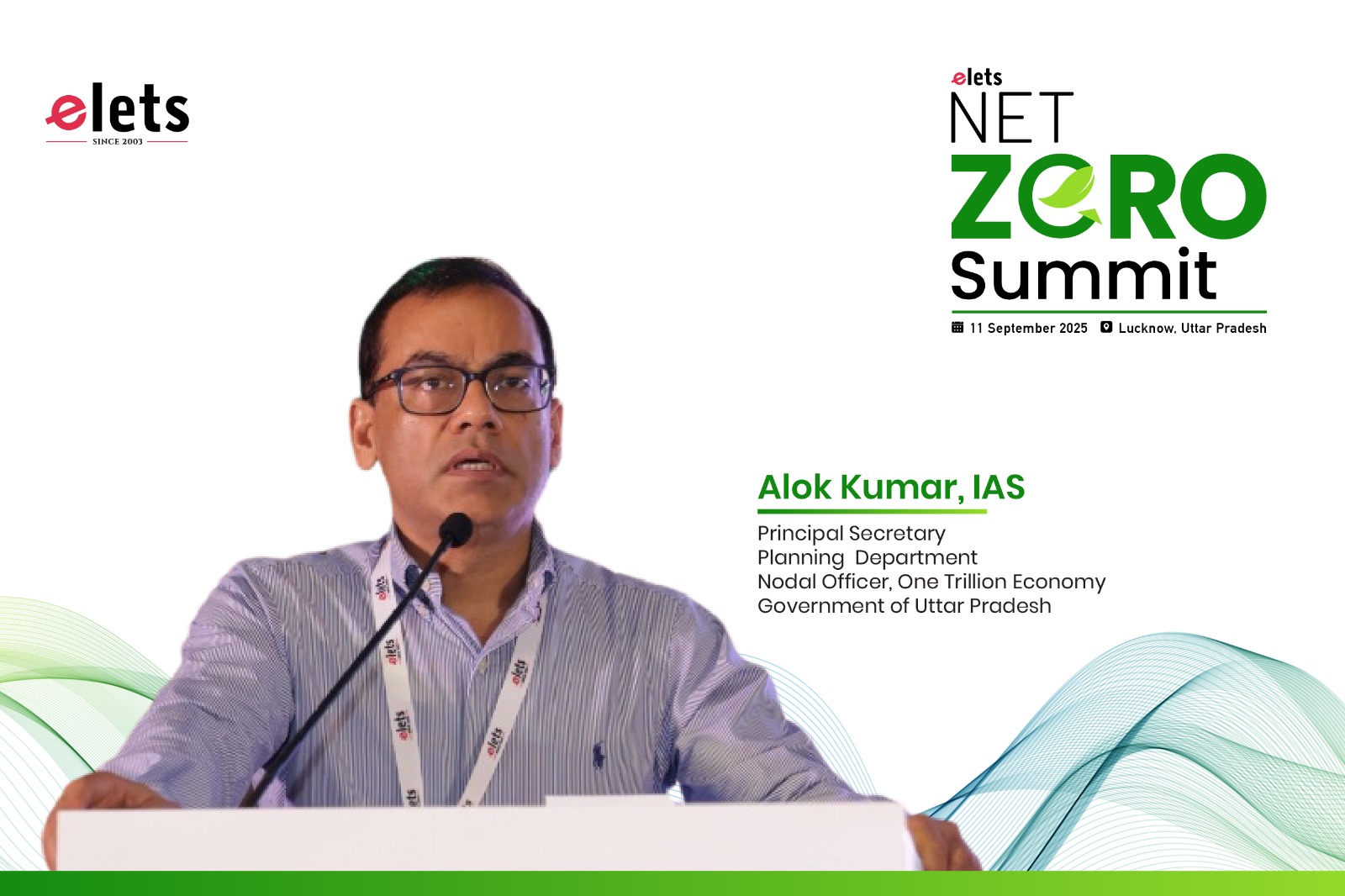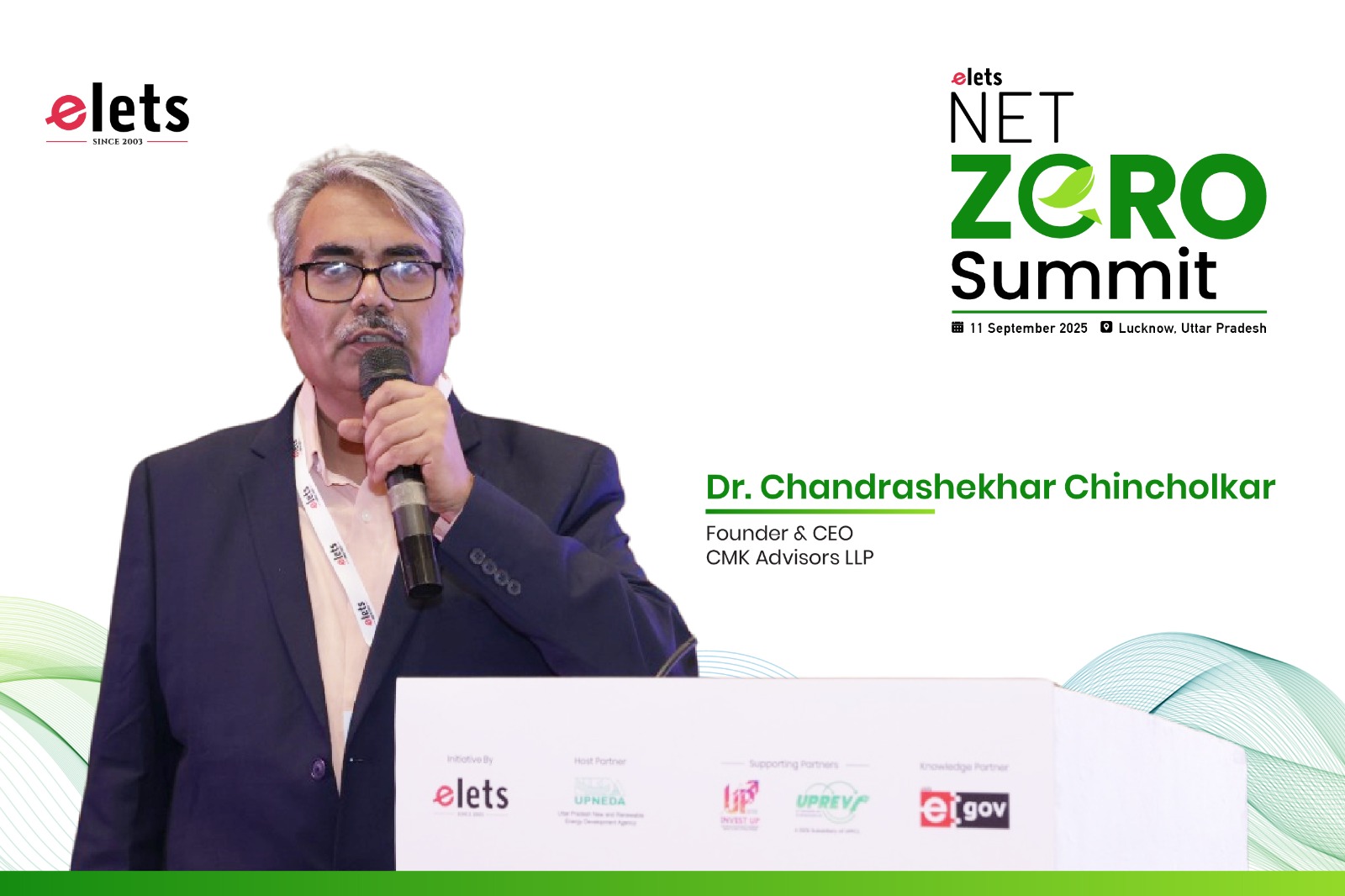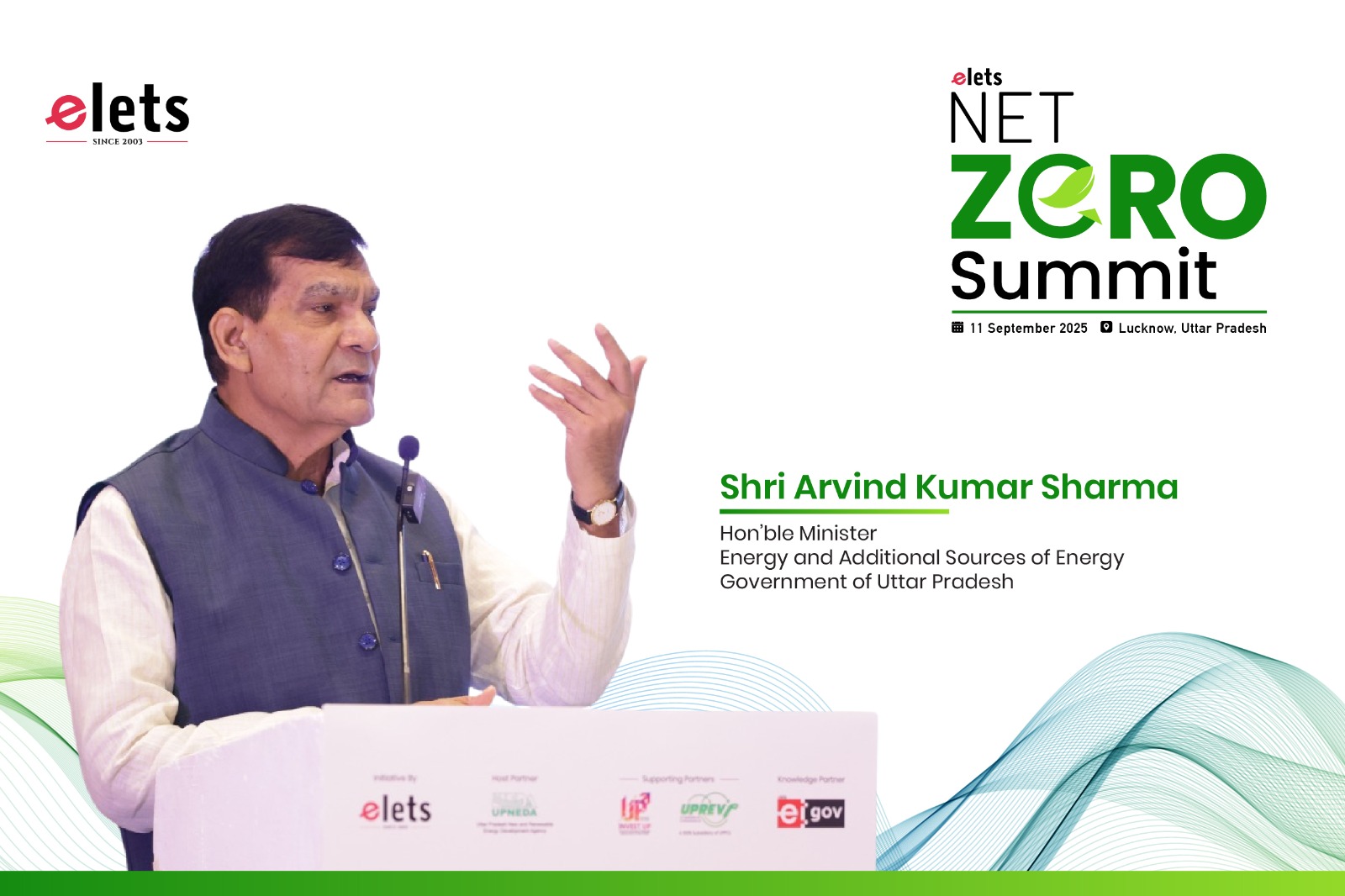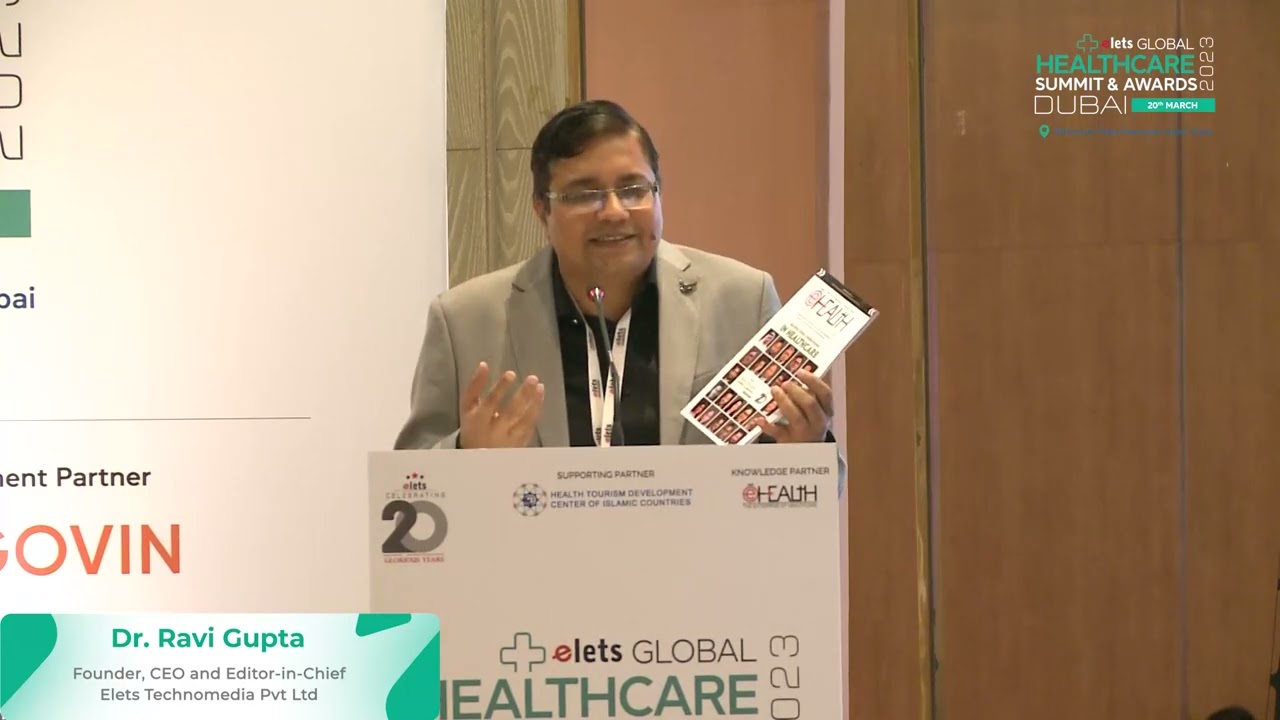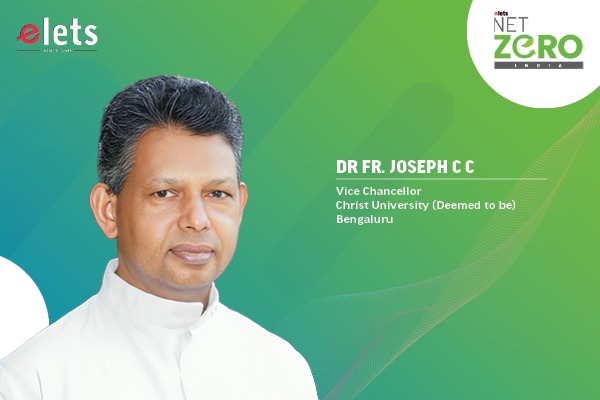
Christ University is actively contributing to India’s renewable energy transition through cutting-edge research, industry collaborations, and specialized academic programs. From green hydrogen and advanced solar technologies to energy storage solutions, the university fosters innovation and skill development. Its initiatives align with national sustainability goals, equipping students to drive the country’s clean energy future. Dr. Fr. Joseph C C, Vice Chancellor of Christ (Deemed to be University), Bengaluru, delves deeper into the university’s green strategies in an exclusive interaction with Abhineet Kumar & Muskan Jaiswal of Elets News Network (ENN). Edited excerpts:
Given India’s Panchamrit commitment made at the Glasgow Climate Summit 2021 and its ambitious target to achieve net-zero emissions by 2070, how is Christ University aligning its research and academic programs to support this national objective?
Christ University is engaged in cutting-edge research across various domains of renewable energy, including thirdgeneration solar cells such as perovskite and organic photovoltaics, which offer higher efficiency and lower costs. The university is also exploring advanced energy storage solutions, including lithium-ion, solid-state, and alternative battery chemistries, along with supercapacitors for rapid charging and grid stabilization.
In line with India’s National Green Hydrogen Mission, Christ University is researching green hydrogen production through electrolysis and fuel cell technologies for clean energy conversion. Additionally, it is working on innovative energy harvesting methods, such as triboelectric nanogenerators, which convert mechanical energy into electricity.
These efforts are complemented by interdisciplinary research integrating physics, chemistry, and materials science to address complex energy challenges. Collaborations with industry, government, and international institutions ensure that the university’s research aligns with national and global sustainability goals.
To support India’s renewable energy transition, Christ University offers specialized academic programs and training in renewable energy technologies, energy storage, and sustainable development. These initiatives equip students with the skills needed to meet the sector’s growing demand for professionals.
By focusing on these areas, Christ University is contributing to scientific advancement and playing a pivotal role in achieving net-zero emissions by 2070 and fostering a selfreliant energy future for India.
The National Green Hydrogen Mission aims to position India as a global leader in green hydrogen production. What initiatives has Christ University undertaken to contribute to research and development in green hydrogen technologies?
One of the university’s primary research goals is to reduce the cost of green hydrogen production to below $1 per kilogram, making it economically viable. To achieve this, researchers are working across various Technology Readiness Levels (TRL), from fundamental material studies to prototype development.
The School of Science is focusing on developing low-cost electrolyzers by designing electrode materials that are stable, cost-effective, and highly efficient. A significant aspect of the research involves exploring alternatives to freshwater, such as seawater and wastewater, for hydrogen production to enhance sustainability and reduce costs.
By addressing both material innovation and process optimization, Christ University aims to make green hydrogen production more accessible and scalable. The university has secured funding from key government agencies such as the Department of Science and Technology and the Department of Atomic Energy to support these initiatives. These efforts align with India’s broader objectives of achieving energy independence and reducing carbon emissions.
As of October 2024, renewable energy constitutes 46.3% of India’s total installed capacity. How should the country leverage industry-academia collaborations to address challenges in scaling up renewable energy infrastructure?
As a university, we emphasize the critical role of industryacademia collaborations by aligning our research and training programs with industry goals. We offer academic programs that equip students with the skills needed for emerging technologies, such as energy storage, grid integration, and green hydrogen.
By providing industry internships, hands-on projects, and collaborative training, we bridge the skills gap and prepare a future-ready workforce. Establishing incubation centres and pilot projects would further accelerate innovation and deployment. Through these efforts, we can create a sustainable ecosystem that drives India’s renewable energy transition while addressing industry demands.
The renewable energy sector in India faces a significant skills shortage, with an estimated gap of around 1.2 million trained professionals. What steps is Christ University taking to bridge this skills gap through specialized programs and training?
Christ University is actively addressing the skills shortage in India’s renewable energy sector by offering specialized courses at both undergraduate and postgraduate levels. These programs are designed to equip students with the technical knowledge and practical skills required to meet industry demands.
To ensure industry relevance, the university regularly invites professionals from the renewable energy sector to conduct workshops and training sessions. Students also gain handson experience through mandatory three-month industrial internships during their coursework, allowing them to apply classroom learning to real-world settings.
The university’s curriculum is regularly updated to align with the latest technological advancements and industry trends. Collaborative projects with industry partners further enhance students’ practical exposure.
Additionally, Christ University has dedicated centres for advanced materials research focused on renewable energy technologies, fostering innovation and cutting-edge solutions. By combining academic rigour with industrydriven training, Christ University is preparing a skilled workforce to contribute to India’s renewable energy goals.
These initiatives not only bridge the skills gap but also empower students to become leaders and innovators in the sustainable energy sector.
Also Read :- Petronet LNG’s role in strengthening India’s Natural Gas security
Considering the critical role of innovation in achieving the energy transition, what steps should the university take to support startups and entrepreneurial ventures focusing on clean technologies and sustainable energy solutions?
Christ University is committed to fostering innovation and entrepreneurship in clean technologies and sustainable energy solutions through its dedicated incubation centre. The centre provides comprehensive mentorship, guiding students and young entrepreneurs in transforming their ideas into viable startups.
It also offers access to essential resources, including stateof-the-art labs, research facilities, and industry networks, to support the development of renewable energy solutions. To further encourage innovation, the university provides funding for patent applications and grants, ensuring that groundbreaking ideas are protected and commercialized. By organizing workshops, hackathons, and networking events, the university creates a vibrant ecosystem for collaboration and knowledge exchange.
These initiatives empower students to become leaders in the energy transition, driving sustainable development and contributing to India’s renewable energy goals.
Be a part of Elets Collaborative Initiatives. Join Us for Upcoming Events and explore business opportunities. Like us on Facebook , connect with us on LinkedIn and follow us on Twitter, Instagram.
"Exciting news! Elets technomedia is now on WhatsApp Channels Subscribe today by clicking the link and stay updated with the latest insights!" Click here!





